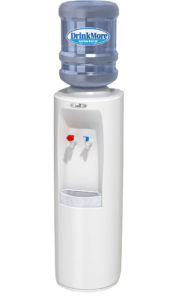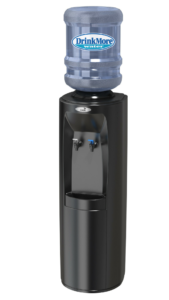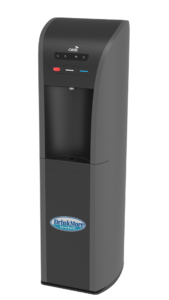Hormones and Pharmaceutical Drugs In Our Tap Water - Really?
Well, according to a report by the Associated Press, that's the conclusion from a study of 24 municipal tap waters - yes, small quantities of pharmaceuticals -- including antibiotics, hormones, mood stabilizers, and other drugs - are in our drinking water supplies.
According to WebMD, who reviewed the AP report, these are obvious potential causes for concern. Even the NRDC - which is not a big fan of bottled water to say th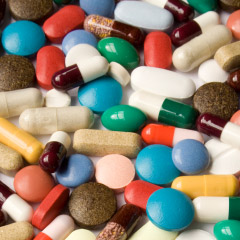 e least - weighs in with concerns. I have quoted (using quotation marks) various parts of the WebMD article
e least - weighs in with concerns. I have quoted (using quotation marks) various parts of the WebMD article
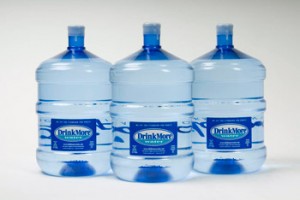 Since our bodies are made up of 70% water and all our internal systems depend on hydration to function at their best, drinking clean, healthy water is the best possible thing you can do for your health.
At DrinkMore Water, we’re dedicated to providing the highest quality purified water, ensuring that every drop is free from contaminants but remains rich in essential nutrients.
We have a proprietary and rigorous 12-step purification process ensuring that the water we deliver is the purest and cleanest possible.
Since our bodies are made up of 70% water and all our internal systems depend on hydration to function at their best, drinking clean, healthy water is the best possible thing you can do for your health.
At DrinkMore Water, we’re dedicated to providing the highest quality purified water, ensuring that every drop is free from contaminants but remains rich in essential nutrients.
We have a proprietary and rigorous 12-step purification process ensuring that the water we deliver is the purest and cleanest possible.
What Is Distilled Water?
Distilled water is water that has undergone a purification process to remove impurities and contaminants.
The way it’s done is simple: The water is boiled until it turns into stea
We often get this question from potential customers and the reasons this question gets asked are at least twofold. Let's explore each of those reasons in more detail.
5-Gallon Bottles
So some people ask the question of whether plastic 5-gallon bottles can be safely reused. The answer is a resounding yes! All of our plastic 5-gallon (and 3-gallon) jugs are made from 100% PET (BPA-free). They're thick and sturdy. When we receive empty bottles back from customers, each and every bottle gets visually inspected and then sniffed for odd odors. Why do we do that? Because we never know what people have done with our bottles after drinking the contents! And we've seen it all. Kids put crayons in them. There can be leaves in them. I've seen them returned having been used to make grain alcohol punch - you name it and we've seen it! That's why we
Bisphenol A is arguably one of the most controversial compounds on earth. It’s been studied, researched, and tested by hundreds of scientists in hundreds of studies. Many of these studies indicate that it is harmless in the quantities tested, while others conclude that it is a serious endocrine disrupter.
As background, bisphenol A, or BPA, is a chemical compound that goes into many different products, some food-related and some not. It has been widely used for many years and continues to be used today. One of its primary uses is to make a type of plastic called polycarbonate (also known as “Lexan”). This material is used extensively as a liner for both steel and aluminum cans—including everything from soup and tuna fish cans to beer and soda cans. Every one of these cans needs some type of coating to prevent rusting on the inside to avoid the food or beverage acquiring a
The local tap water usually meets federally mandated guidelines for drinking water and it’s certainly less expensive than bottled water. However, it has many impurities in it. It has chemicals – like chlorine – added to it. And many people don’t enjoy the way it tastes.
I always get a laugh from the water that restaurants serve. Nice restaurants always pride themselves on the quality of their food, but they always start you off (or at least most of the time) with a glass of water straight from the tap. It can taste awful. Makes you wonder how good their food is going to be.
Tap water is obviously a very important service provided to the community. It’s used to help fight fires, wash clothes, flush toilets, water lawns and take showers. The problem is that every single gallon of tap water must meet minimum standards. The local authorities don’t know whether you’re
Water is essential to the human body, and drinking pure, clean water is an important part of maintaining your health. As the popularity of bottled water has increased, so have claims about the benefits of its contents, from specialty waters with added vitamins to mineral-rich waters from natural springs.
One of the most recent trends in the bottled water industry is the marketing of alkaline water, which is claimed to have many health benefits and disease-fighting properties above and beyond your typical bottled water. Consumers can even purchase over-priced machines that produce alkaline water at home—so, what is the deal with alkaline water?
What Is Alkaline Water?
Simply put, alkaline water is water that has a pH of more than 7. The pH scale ranges from 1 to 14, with 7 being considered neutral, anything less than 7 being acidic, and anything more than 7 being alka
Do I actually want minerals in my water? A great question. Let’s start with what exactly are minerals? Minerals are inorganic substances (such as rocks and similar matter) found in the earth strata, as opposed to organic substances such as plant and animal matter. Some familiar minerals are what we think of as “good minerals” – things like calcium, magnesium and potassium. There are also “not so good” minerals – at least as far as the human body is concerned – things like lead, arsenic, antimony, aluminum, barium, etc. So, we begin with the knowledge that all minerals aren’t necessarily good for you.
As you saw in the above definition of mineral, minerals are inorganic substances (like rocks). There is considerable debate in the scientific commu
 e least - weighs in with concerns. I have quoted (using quotation marks) various parts of the WebMD article
e least - weighs in with concerns. I have quoted (using quotation marks) various parts of the WebMD article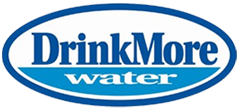

 Since our bodies are made up of 70% water and all our internal systems depend on hydration to function at their best, drinking clean, healthy water is the best possible thing you can do for your health.
At DrinkMore Water, we’re dedicated to providing the highest quality purified water, ensuring that every drop is free from contaminants but remains rich in essential nutrients.
We have a proprietary and rigorous 12-step purification process ensuring that the water we deliver is the purest and cleanest possible.
Since our bodies are made up of 70% water and all our internal systems depend on hydration to function at their best, drinking clean, healthy water is the best possible thing you can do for your health.
At DrinkMore Water, we’re dedicated to providing the highest quality purified water, ensuring that every drop is free from contaminants but remains rich in essential nutrients.
We have a proprietary and rigorous 12-step purification process ensuring that the water we deliver is the purest and cleanest possible.
